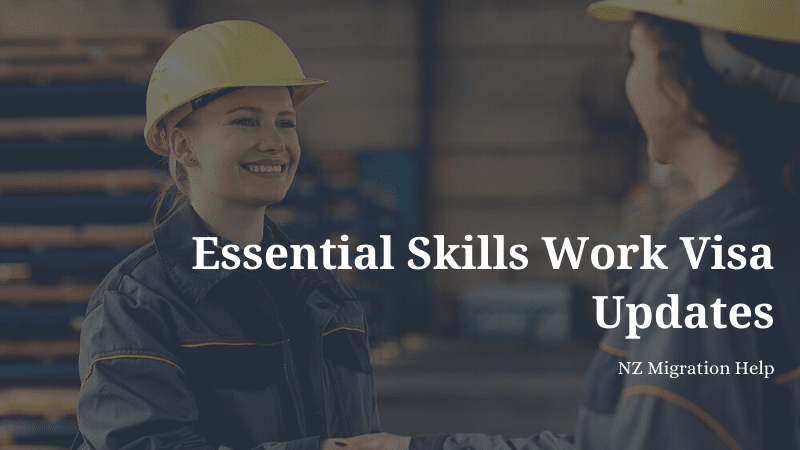Any non-New-Zealander can make an application for the Essential Skills Work Visa if they receive a written full-time official job offer from an employer who is a citizen or resident of NZ. However, a person can only work under an employee and cannot conduct independent research as mentioned in the clauses.
Conditions and Criteria
Conditions Levied on the Employer
The employer needs to fill up the supplementary form that can be procured from the INZ authorities. This form seeks information about the employer, employee position details, and an employer declaration. Book a Consultation to learn how to get in touch with prospective New Zealand employees looking to recruit!
They must prove that they have run a local labor market test.
For high-skilled job occupations, the employer needs to produce
- Motivational statement.
- The text for their advertisement.
- Details of where and for what duration their advert ran for.
For low-skilled occupations, the employer needs to produce
- A Skills Match Report from Work and Income.
- Motivational statement.
- Proof of their advertisement for the role.
- Evidence that there are no New Zealand citizens available to fill the job vacancy.
- Evidence that there are no New Zealanders who deem themselves suitable for the job.
- If the foreign employee who wishes to apply for the job is working in an occupation that features in the Essential Skills in Demand list, a more restricted list of more specialized fields for which New Zealanders’ supply is significantly lower.
- The employee has recently been invited to apply for residence under the Skilled Migrant category.
The foreign employee must meet these conditions
The pay rate
- Whether they receive the median wage or more
- Whether they receive less than the median wage
Changes in the Essential Skills Visa Protocols
The pay wage of an Essential Skills Worker determines specific protocols of their stay and other factors, the two most important being the duration of their stay and whether they can support their partner’s work visa and the visitor visa of their dependent children. The above points are concerning the changes made in the Essential Skills Visa protocols post-July 26, 2020:
Eligibility to support the family
- If you earn the median wage or more, you will be able to support a visitor visa or a work visa for your partner, as well as a student or visitor visa for your children.
- If you earn below the median wage, you will be able to support a Visitor visa for your partner but not a work visa, which they will have to apply for in their own right. You can still support visitor and student visas for your children only if you meet the minimum income threshold of NZD $43,322.76 in a year.
Duration of Stay
- If you earn the median wage or more, you will be granted a visa for three years.
- If you earn below the minimum wage, the visa will last for six months.
Stand-down Period
- A stand-down period means leaving New Zealand for a period of 12 months before you can be allowed to apply for another visa for work that pays below the median wage.
- If your job pays less than the median wage, you will be subject to a stand-down period if you have been in New Zealand for three years to work on an essential skills visa.
- Previously this clause of the stand-down period applied if you were assessed as lower-skilled labor, i.e., if you applied before July 27, 2020.
The Work to Residence Visas that you can apply after 24 months of engagement in the job is of two types.
Conclusion
The NZ immigration policies are undergoing changes with evolving global circumstances in the aftermath of COVID-19. Although the border is still sealed, it is advisable to acquaint yourself with visa waiver and border relaxation policies so that you can plan your tour or work-purpose journey well in advance without having to go through the unnecessary hassle.
